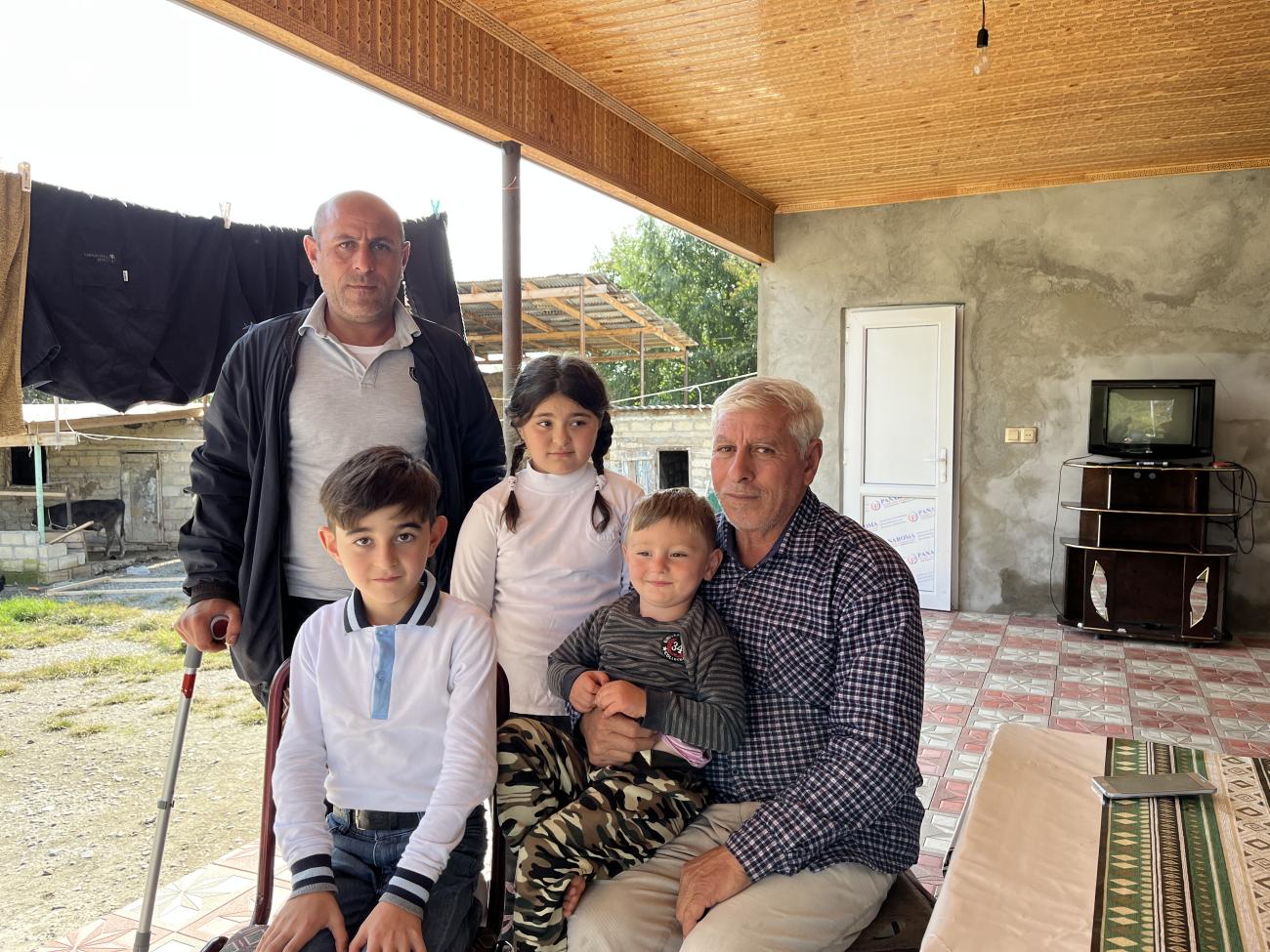The lingering impact of landmines on children and families in Azerbaijan

When 65-year-old Akif heard that his grandson and two sons had been caught up in a landmine explosion, he raced to help – only to find himself facing the same..
As the world marks Mine Awareness Day, Akif remembers his two sons who died in a landmine explosion, and other family members who still live with the scars.
When 65-year-old Akif heard that his grandson and two sons had been caught up in a landmine explosion, he raced to help – only to find himself facing the same fate.
“We saw that one of my sons was lying on the ground,” recalls Akif, who lives in a village near Agdam, in Azerbaijan.
“I called to him but he didn’t respond, and he was covered in blood. One had a child in his arms and he had no legs. My friend told me to pick him up and put him on my back.
After that, I don’t remember anything.” Separate blasts killed two of Akif’s sons, and injured his eight-year-old grandson Huseyn.
Akif was rushed to hospital with a broken leg, while a neighbour, trying desperately to save the family, was also wounded in the tragedy. “I don’t know where we would be if he hadn’t come,” says Akif.
“My grandson is still receiving psychological support. He often stutters when he speaks and when he gets angry, he finds it difficult to cope with his feelings and it takes him time to calm down.”

“Who would want something like this to happen to their child in their home?” adds Huseynova, the boy’s mother. “My son still does not like to talk about what happened. He is afraid of the dark.”
Explosive remnants of war and landmines remain a major risk for communities living in parts of Azerbaijan which, after years of conflict, is now one of the most mine-contaminated countries in the region. Since November 2020, 65 people have been killed and 289 people injured from explosive ordnance across Azerbaijan, including nine children. This is why, UNICEF is prioritising its partnership with the government on Explosive Ordnance Risk Education (EORE) and capacity building. Without effective EORE programmes and including them in the school curriculum, there are concerns that the number of casualties will continue to increase.
“Providing lifesaving risk education will continue to be a priority for UNICEF in the coming years,” says Saja Farooq Abdullah, UNICEF Representative in Azerbaijan.
“No child should ever be at risk when coming home from school, walking in the park or having fun outdoors. We will continue our critical risk education programmes in areas where needs are the highest, raising awareness of risks and life-saving safety rules in schools and communities, as well as providing mental health and psychosocial support services.”
Thousands of families and children are already benefitting from these life-saving community engagement and communication activities, such as UNICEF’s partnership with the Mine Action Agency of the Republic of Azerbaijan (ANAMA) and the Ministry of Science and Education, which has helped over 20,000 children to receive EORE through school-based activities.
This partnership has also helped over 124,000 people, including 46,000 children in conflict-affected areas, to receive EORE through face-to-face sessions, and contributed to the development of more than 720 billboards and printed materials that raise awareness in these territories.



